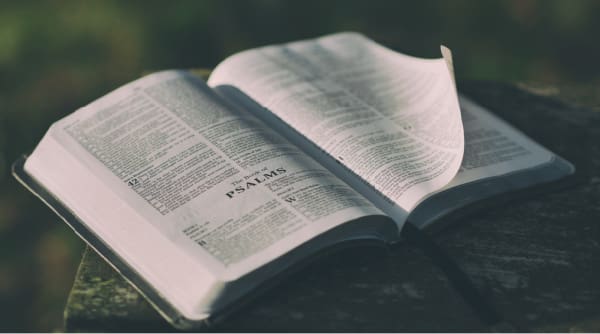The Divine Presence – “The Master’s instructions”
Saint Benedict exhorts the monk to listen to the “Master’s” instructions. Who is the Master? On the one hand the Master is God. On the other hand, it refers to those who hold divine authority, such as the Abbot, but also to other authorities like parents, government leaders, teachers, elders, etc. In other words, God certainly instructs us directly, but He also instructs us through other people. This principle is repeated several times in the Rule of Benedict and it is an extremely important one for our Christian lives. Blessed Columba Marmion, OSB noted that the central theme of the whole Rule of Benedict is expressed in this idea found in Saint Benedict’s exhortation: “We believe the divine presence is everywhere…but beyond the least doubt we should believe this to be especially true when we celebrate the divine office” (RB 19:1-2).
The beginning of our awareness of God generally happens in a religious experience. Our communal celebrations, including the Mass, the Liturgy of the Hours, and the other Sacraments, are important points of contact with God. It is critical that they be celebrated in a reverent and devoted manner. When these great times of prayer are beautiful and prayerful, they can be a cause for conversion. They should be bright with music but balanced with times of silent reflection. They must be led confidently, reverently, and prayerfully. These are the expectation of Saint Benedict when he reminds us that “beyond the least doubt we should believe” the divine presence is to be found in the divine office (RB 19:2). We must conduct ourselves in communal prayer and in the Church as we would conduct ourselves in the presence of a mighty ruler: “Whenever we want to ask some favor of a powerful man, we do it humbly and respectfully, for fear of presumption” (RB 20:1). Rather than carrying on raucous conversations or irreverent worldly activities in Church we must always act in a manner that reminds ourselves and also shows others that the One True God is present there in His Flesh reserved in the Tabernacle.
Saint Benedict expects us to develop a sensitivity to the divine presence by celebrating the liturgy well and taking the words of God on our lips seven times a day. “Let us stand to sing the psalms in such a way that our minds are in harmony with our voices (mens concordet voci)” (RB 19:7). Normally we first form words in our minds and then we speak them out with our voices. When we pray the psalms, however, the words are given to us to speak, but then they begin to form our minds. In this way, we allow the Word to form our way of thinking, which in turn can form our way of acting. After repeating the words of the psalms, the liturgical prayers and the readings from Mass, our hearts become more and more sensitive to the divine presence. We start to see his fingerprints and footprints all around us. We see His presence in the lives of others—in the lives of other monks and in the lives of the guests who come to the monastery. We see His Presence in our work. We see His presence in the sick members of the community. We see His presence in the Abbot. We see His presence at our meals. By becoming sensitized to the Word of God and taking on the mind of Christ, we start to see the divine presence everywhere in our lives.
This brings us back to the question, “Who is the Master?” The Master is God and we must take time in liturgical prayer and in personal prayer in order to begin hearing God and to sensitize our hearts to His presence. As we do that, however, we also start to see Him in everything. The monk is the one who arranges His day around repeated acts of attention to the divine presence. He regularly interrupts every other activity because “nothing is to be preferred to the Work of God” (RB 43:3). With his visits to the oratory and his celebrations of the liturgy of the hours at the center of his day, the monk makes acts of recollection throughout the rest of his day to renew his awareness of the divine presence. In Saint Benedict’s time, it was already encouraged by St. John Cassian to recite the verse of Psalm 70: “God, come to my assistance. Lord, make haste to help me.” Cassian identified that verse as a defense against every attack of the Enemy and as a simple way to return one’s attention to God throughout the day. In the subsequent centuries, the Jesus Prayer served a similar purpose, “Lord Jesus Christ, Son of God, have mercy on me, a sinner.” With these brief prayers, the monk can bring his awareness of the presence of God, which is especially strong in the places of prayer, out into the rest of his life. He can learn to hear the instructions of the Great Master through every other little “master”. Even in sinful men or atheists, the prayerful monk can learn to be aware of the Presence of God.




